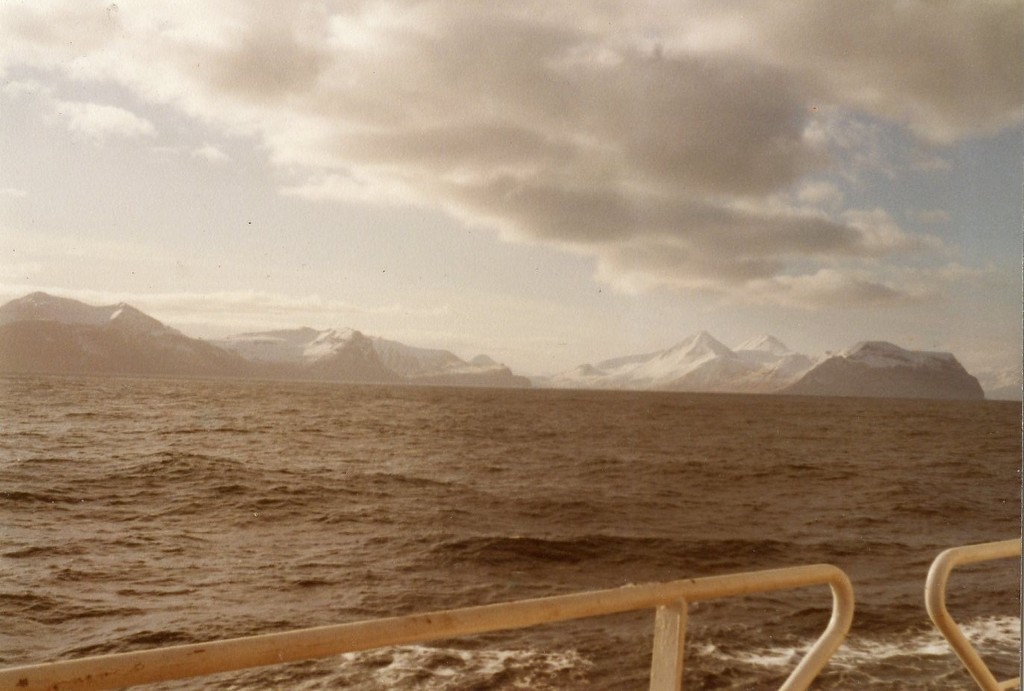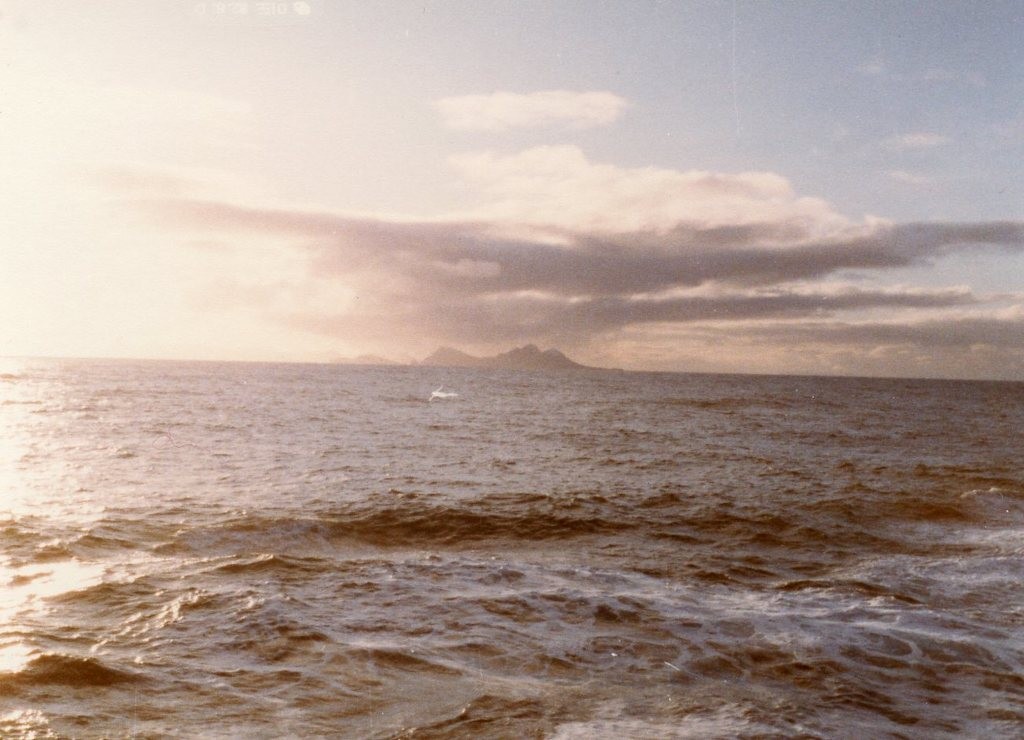| 밤하늘의 별빛이 내 눈에 닿기 까지는 수억 년의 시간이 걸립니다. 2014/12/01 06:17
|
추천 0 스크랩 0 |
| http://blog.chosun.com/dhleemd/7612054 | |
| 밤하늘의 별빛이 내 눈에 닿기 까지는
수억 년의 시간이 걸립니다. 이처럼 우리들의 삶도 영겁의 강을 따라 흐르고 있습니다. 나는 그 영원의 강에 배 한척을 띄웁니다.
요 며칠 동안 저녁 산책 때 마다 생각 없이 지나다니고 흘려버렸던 알류산 열도와 시애틀 추장의 말을 곱씹어 보고 있답니다.
알류산 열도는 우리들의 선조들이 아메리카 대륙으로 건너갔던 다리였으며 그 시애틀 추장은 우리들의 할아버지의 할아버지의 형제분이었기 때문입니다.
There is a great deal of controversy surrounding Chief Seattle’s speech of 1854. There are many sources of information, various versions of the speech, and debates over its very existence. Please see the links at the end of the speech.
A multimedia presentation, interpreted and narrated by Wes Felty: Chief Seattle’s reply to a Government offer to purchase the remaining Salish lands:
Audio only (737k MP3)
——————————————————————————– Version 1 (below) appeared in the Seattle Sunday Star on Oct. 29, 1887, in a column by Dr. Henry A. Smith.
“CHIEF SEATTLE’S 1854 ORATION” – ver . 1 AUTHENTIC TEXT OF CHIEF SEATTLE’S TREATY ORATION 1854 Yonder sky that has wept tears of compassion upon my people for centuries untold, and which to us appears changeless and eternal, may change. Today is fair. Tomorrow it may be overcast with clouds. My words are like the stars that never change. Whatever Seattle says, the great chief at Washington can rely upon with as much certainty as he can upon the return of the sun or the seasons. The white chief says that Big Chief at Washington sends us greetings of friendship and goodwill. This is kind of him for we know he has little need of our friendship in return. His people are many. They are like the grass that covers vast prairies. My people are few. They resemble the scattering trees of a storm-swept plain. The great, and I presume — good, White Chief sends us word that he wishes to buy our land but is willing to allow us enough to live comfortably. This indeed appears just, even generous, for the Red Man no longer has rights that he need respect, and the offer may be wise, also, as we are no longer in need of an extensive country.
There was a time when our people covered the land as the waves of a wind-ruffled sea cover its shell-paved floor, but that time long since passed away with the greatness of tribes that are now but a mournful memory. I will not dwell on, nor mourn over, our untimely decay, nor reproach my paleface brothers with hastening it, as we too may have been somewhat to blame.
Youth is impulsive. When our young men grow angry at some real or imaginary wrong, and disfigure their faces with black paint, it denotes that their hearts are black, and that they are often cruel and relentless, and our old men and old women are unable to restrain them. Thus it has ever been. Thus it was when the white man began to push our forefathers ever westward. But let us hope that the hostilities between us may never return. We would have everything to lose and nothing to gain. Revenge by young men is considered gain, even at the cost of their own lives, but old men who stay at home in times of war, and mothers who have sons to lose, know better.
Our good father in Washington–for I presume he is now our father as well as yours, since King George has moved his boundaries further north–our great and good father, I say, sends us word that if we do as he desires he will protect us. His brave warriors will be to us a bristling wall of strength, and his wonderful ships of war will fill our harbors, so that our ancient enemies far to the northward — the Haidas and Tsimshians — will cease to frighten our women, children, and old men. Then in reality he will be our father and we his children. But can that ever be? Your God is not our God! Your God loves your people and hates mine! He folds his strong protecting arms lovingly about the paleface and leads him by the hand as a father leads an infant son. But, He has forsaken His Red children, if they really are His. Our God, the Great Spirit, seems also to have forsaken us. Your God makes your people wax stronger every day. Soon they will fill all the land. Our people are ebbing away like a rapidly receding tide that will never return. The white man’s God cannot love our people or He would protect them. They seem to be orphans who can look nowhere for help. How then can we be brothers? How can your God become our God and renew our prosperity and awaken in us dreams of returning greatness? If we have a common Heavenly Father He must be partial, for He came to His paleface children. We never saw Him. He gave you laws but had no word for His red children whose teeming multitudes once filled this vast continent as stars fill the firmament. No; we are two distinct races with separate origins and separate destinies. There is little in common between us.
To us the ashes of our ancestors are sacred and their resting place is hallowed ground. You wander far from the graves of your ancestors and seemingly without regret. Your religion was written upon tablets of stone by the iron finger of your God so that you could not forget. The Red Man could never comprehend or remember it. Our religion is the traditions of our ancestors — the dreams of our old men, given them in solemn hours of the night by the Great Spirit; and the visions of our sachems, and is written in the hearts of our people.
Your dead cease to love you and the land of their nativity as soon as they pass the portals of the tomb and wander away beyond the stars. They are soon forgotten and never return. Our dead never forget this beautiful world that gave them being. They still love its verdant valleys, its murmuring rivers, its magnificent mountains, sequestered vales and verdant lined lakes and bays, and ever yearn in tender fond affection over the lonely hearted living, and often return from the happy hunting ground to visit, guide, console, and comfort them.
Day and night cannot dwell together. The Red Man has ever fled the approach of the White Man, as the morning mist flees before the morning sun. However, your proposition seems fair and I think that my people will accept it and will retire to the reservation you offer them. Then we will dwell apart in peace, for the words of the Great White Chief seem to be the words of nature speaking to my people out of dense darkness.
It matters little where we pass the remnant of our days. They will not be many. The Indian’s night promises to be dark. Not a single star of hope hovers above his horizon. Sad-voiced winds moan in the distance. Grim fate seems to be on the Red Man’s trail, and wherever he will hear the approaching footsteps of his fell destroyer and prepare stolidly to meet his doom, as does the wounded doe that hears the approaching footsteps of the hunter.
A few more moons, a few more winters, and not one of the descendants of the mighty hosts that once moved over this broad land or lived in happy homes, protected by the Great Spirit, will remain to mourn over the graves of a people once more powerful and hopeful than yours. But why should I mourn at the untimely fate of my people? Tribe follows tribe, and nation follows nation, like the waves of the sea. It is the order of nature, and regret is useless. Your time of decay may be distant, but it will surely come, for even the White Man whose God walked and talked with him as friend to friend, cannot be exempt from the common destiny. We may be brothers after all. We will see.
We will ponder your proposition and when we decide we will let you know. But should we accept it, I here and now make this condition that we will not be denied the privilege without molestation of visiting at any time the tombs of our ancestors, friends, and children. Every part of this soil is sacred in the estimation of my people. Every hillside, every valley, every plain and grove, has been hallowed by some sad or happy event in days long vanished. Even the rocks, which seem to be dumb and dead as the swelter in the sun along the silent shore, thrill with memories of stirring events connected with the lives of my people, and the very dust upon which you now stand responds more lovingly to their footsteps than yours, because it is rich with the blood of our ancestors, and our bare feet are conscious of the sympathetic touch. Our departed braves, fond mothers, glad, happy hearted maidens, and even the little children who lived here and rejoiced here for a brief season, will love these somber solitudes and at eventide they greet shadowy returning spirits. And when the last Red Man shall have perished, and the memory of my tribe shall have become a myth among the White Men, these shores will swarm with the invisible dead of my tribe, and when your children’s children think themselves alone in the field, the store, the shop, upon the highway, or in the silence of the pathless woods, they will not be alone. In all the earth there is no place dedicated to solitude. At night when the streets of your cities and villages are silent and you think them deserted, they will throng with the returning hosts that once filled them and still love this beautiful land. The White Man will never be alone.
Let him be just and deal kindly with my people, for the dead are not powerless. Dead, did I say? There is no death, only a change of worlds. |
|
월별 글 보관함: 2014 11월
탐욕과 살육과 약탈의 New World Order
탐욕과 살육과 약탈의 New World Order
‘촘스키, 은밀한 그러나 잔혹한’을 읽고

육신을 가진 모든 생명체는 불가피하게 주변의 희생을 먹고 삶을 영위하고 있다. 그러나 고래로부터 인간은 단지 자신의 삶을 영위하기 위해 불가피한 필요 때문이 아니라, 탐욕을 위하여 타인을 괴롭히고 착취하는데 익숙해져 있다. 인간의 양심과 윤리에 대한 자각은 개인의 삶에 있어서는 장족의 발전을 하였으나 국가나 인종을 단위로 하는 집단 간의 살육과 약탈은 더욱더 은밀하고 잔인하게 지금 이 시간에도 세계 도처에서 자행되고 있다.
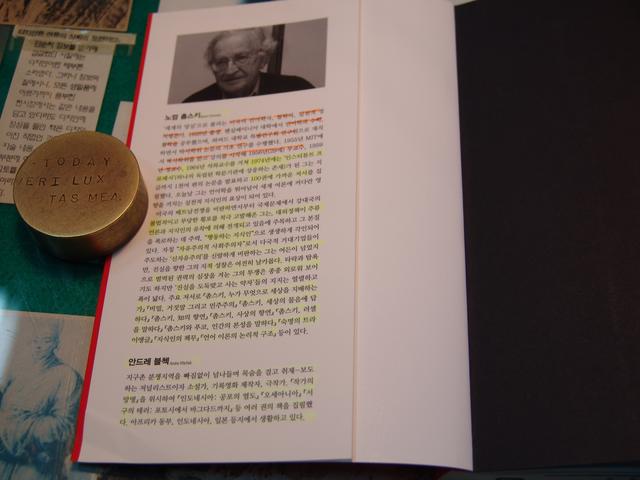
이번에 읽게 된 Noam Chomsky와 Andre Vltchek의 대담집 ‘On Western Terrorism: From Hiroshima to Drone Warfare’를 번역한 이 책은 1945년부터 지금까지, 유럽과 미국으로 대표되는 서양자본과 권력이 어떻게 세계의 부와 국경과 인간의 사고방식까지 뒤흔들고 있는 가를 적나라하게 파헤친 명저라고 생각한다.
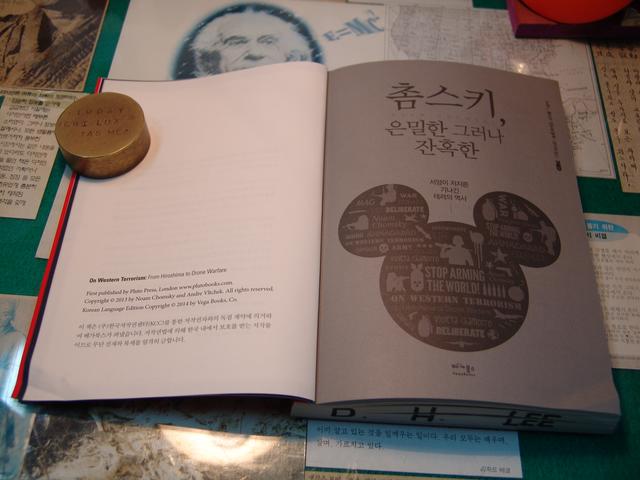
안드레 블첵은 서문에서 “세계 전역에서 수많은 인간들의 고통을 야기하는 사건들의 대다수는 탐욕의 결과였으며, 지배하고 통제하고자하는 욕망과 깊은 연관이 있었다. 그리고 이는 거의 전적으로 ‘구대륙’과, 거기서 대서양의 반대편으로 건너갔던 그들의 강력하고도 무자비한 후손들이 저지른 짓이었다. 그들의 명분이야 얼마든지 다양한 이름을 달고 나타날 수 있지만-식민주의, 신식민주의, 제국주의, 기업의 탐욕-이름이 무슨 상관이겠는가, 그것이 몰고 오는 것은 오로지 고통뿐인 것을!”이라고 한탄하고 있다.
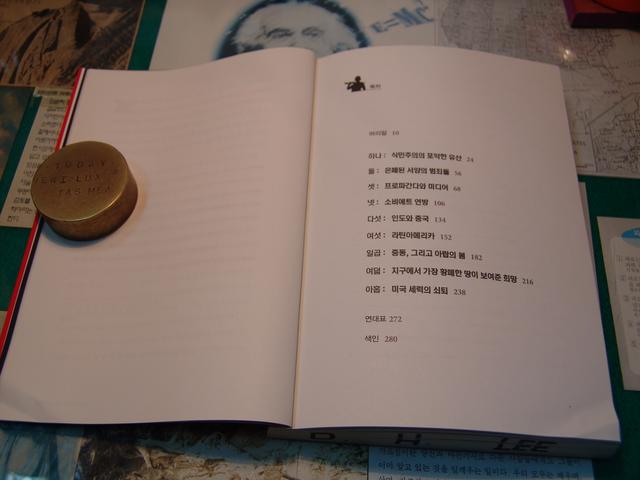
1장, ‘식민주의의 포악한 유산’에서 촘스키는 현재의 환경 파괴에 따른 오세아니아 섬나라들의 위기에 대하여 “그런 걸 두고 조지 오웰이 썼던 용어가 있다. ‘비非인간’이란 뜻의 ‘unpeople’이다. 우리 같은 사람들과 중요하지 않은 다른 모든 사람들, 즉, 비인간들. 오웰은 미래의 전제주의적 사회를 이야기 하고 있었지만, 그건 지금 우리에게도 상당히 잘 적용된다. 마크 커티스(Mark Curtis)라는 이름의 젊고 세련된 영국의 외교사학자가 있는데, 그가 2차 세계대전 이후 대영제국의 약탈에 관한 연구에서 바로 이 용어를 사용하고 있다. 그 비인간들에게 무슨 일이 벌어지든, 우리는 상관하지 않는다는 것이다.
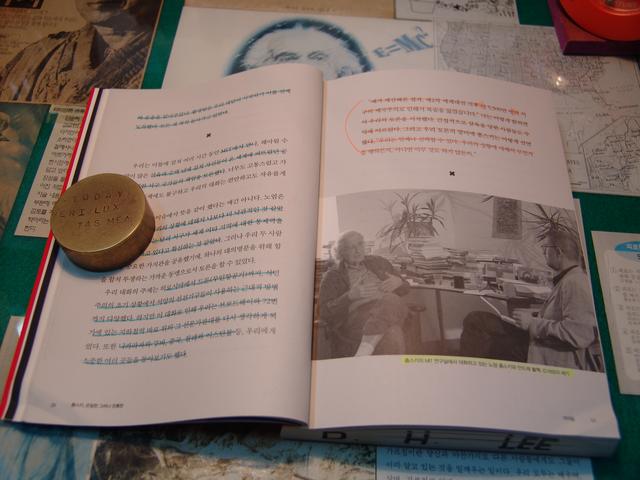
미국, 캐나다, 호주 등, 소위 앵글로스피어(Anglosphere), 즉, 가치와 문화를 공유하는 문화권 국가들, 다시 말해서 잉글랜드의 파생국가들이 원주민을 다루었던 방식에는 아주 유사한 점이 많다. 원주민들을 그저 통치하는데 그치지 않고 완전히 멸족시켜버렸다는 점에서 그들은 유별난 제국주의 사회들이다. 그들은 원주민의 땅과 정착지를 빼앗고 그들을 그야말로 전멸시켜 버렸다. 우리는 그 주민들을 생각하지 않는다. 과거에 그들에게 무슨일이 있었는지를 묻는 법도 없다. 사실 우리는 그것을 부정하고 있다.”고 밝히고 있다.
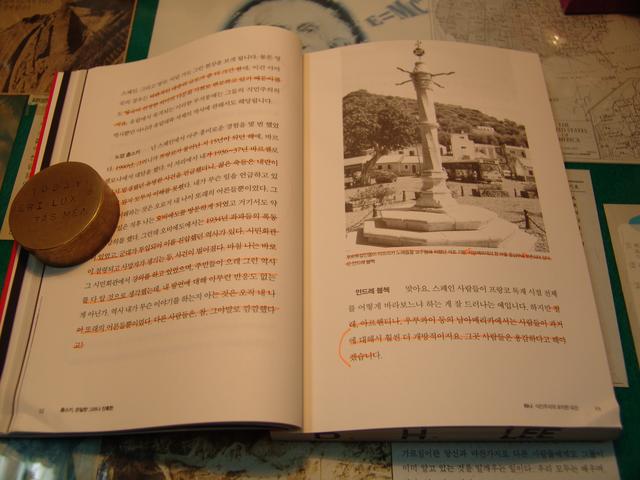
6장 ‘라틴아메리카’에서는 촘스키는 “…마약과의 전쟁이란 것이 그저 미국의 이익에만 부합될 뿐이라는 것을 잘 알고 있기 때문이다. 마약에 대한 수요도 미국에 있고, 무기를 제공하는 것도 미국이지만(멕시코에서 사람들을 살육하는데 쓰이는 무기의 대부분은 애리조나와 텍사스에서 공급된 것이다), 이로 인해 죽어나가는 것은 중미와 남미 사람들 뿐이었으니 말이다. 게다가 미국이 별의별 수단을 다 써봤지만 마약의 복용은 변함없이 그대로이거나 오히려 악화될 뿐이었다. 그래서 라틴아메리카 국가들은 자기네 사회를 파괴하고 있는 미국의 이 전쟁에서 발을 빼고 싶어 한다. 미국과 캐나다는 거의 완전히 고립되어 다른 나라들과 고립하고 있다는 얘기다.”라고 남미와 중미의 마약전쟁에 대하여 밝히고 있다.
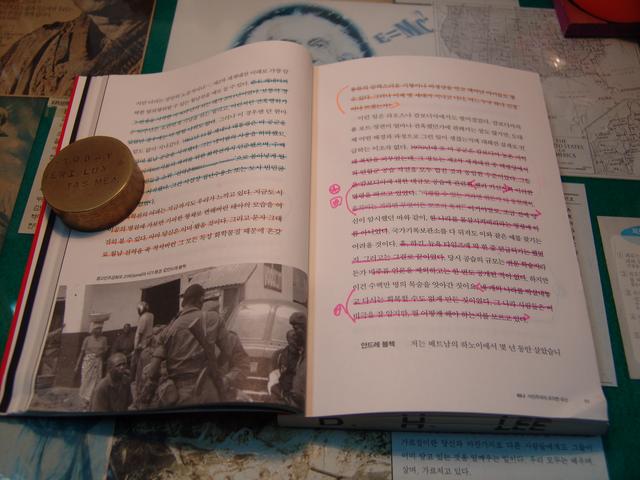
7장 ‘중동, 그리고 아랍의 봄’에서 촘스키는 “세상에서 가장 극단적으로 원리주의적인 회교국가가 바로 미국의 총애를 받고 있는 사우디아라비아다. 영국 역시 일사분란하게 급진 회교도들을 지원해왔다. 그 이유는 세속적인 민족주의에 반대하기 위함이다. 미국과 이스라엘 사이의 관계가 지금까지 가까워진 것은 1967년 일인데, 이는 이스라엘이 세속적 민족주의 타파와 급진적인 이슬람의 방어라는 어마어마한 서비스를 수행해주었기 때문이다.
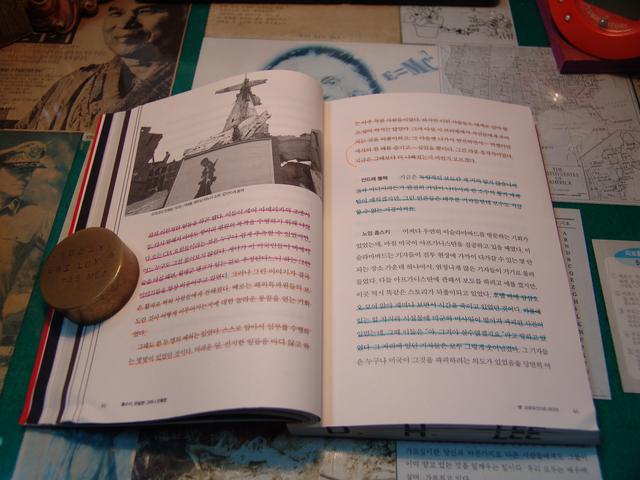
영국의 외교사학자 마크 커티스는 몇 년 전에 (은밀하게: 급진 회교도와 결탁한 영국(Secret Affairs: British Collusion with Radical Islam)이라는 훌륭한 책을 냈다. 그는 이슬람에 관련된 영국의 기록들을 모조리 뒤졌다. 그랬더니 급진 이슬람 세력들을 영국이 지속적으로 지원해왔음이 드러난 것이다. 미국이 해온 일과 별반 다를 바가 없었다. 그렇다고 그들이 급진적인 회교도들을 좋아했던 것은 아니겠지만, 그래도 세속적인 민족주의자들 보다는 낫다고 본 것이다.”라고 지적하고 있다.
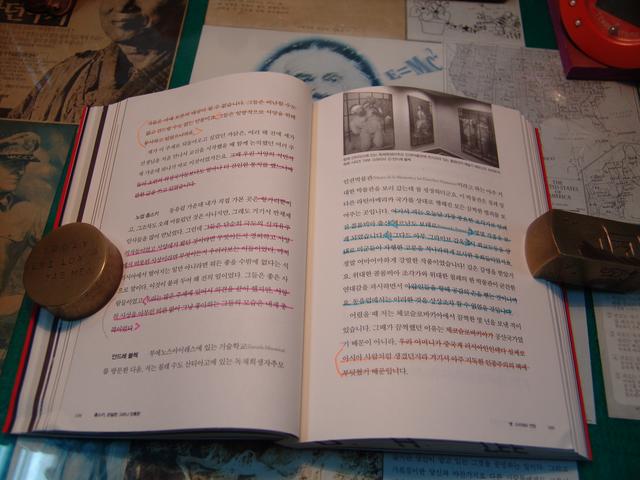
9장 ‘미국 세력의 쇠퇴’에서 촘스키는 “프랑스에서는 조합을 분쇄하기 위하여 파업 방해꾼들이 필요했다. 어떻게 보면 그것은 조직노동자들을 분산시키는 통상적인 과정에 지나지 않았다. 그러나 마르세이유 부두노동자들은 인도차이나를 재정복하려는 프랑스의 시도를 돕기 위해서 인도차이나에 머무르고 있던 프랑스인들에게 보내는 물자며 무기 등을 선적하지 못하도록 간섭하고 나섰다. 어쨌거나 노조의 파업을 방해하거나 노동운동을 분쇄하려면 누군가 그렇게 해줄 사람들이 필요한 법 아닌가? 그런 짓을 잘 하는 것이 바로 마피아였다. 그런데 경쟁이란 것을 딱 싫어하는 나치가 주민들을 쥐 잡듯이 다루는 통에 마피아는 이미 풍비박산이 나버린 상태였다. 그래서 미국은 시칠리아 섬과 프랑스 남부(코르시카)에다 마피아를 다시 일으켜 세우기에 이른다. 그런데 마피아가 공짜로 노동조합을 부숴줄 리는 없지 않은가? 어떤 대가를 지불할 것인지 제시를 해야 하지 않겠는가? 그 대가라는 것이 바로 마약 유통에 대한 통제권이었다. 이게 바로 저 유명한 ‘프렌치 커넥션’인데, 처음엔 프랑스 남부에서 시작되었다가 전 세계로 뻗어 나갔다.
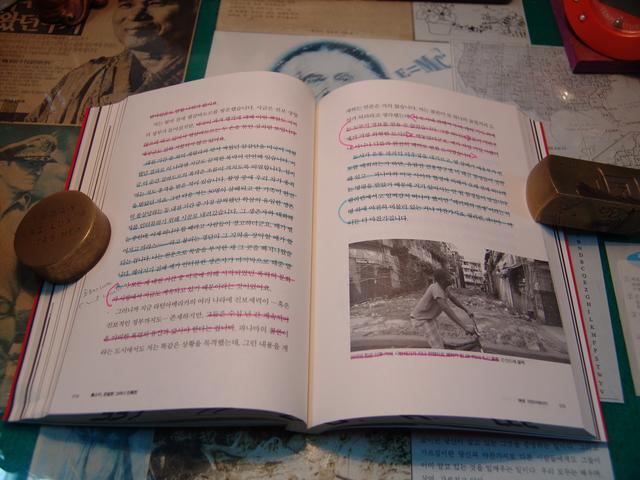
CIA가 정부를 전복시키고 노조를 분쇄하거나 하는 경우 그들은 제일 먼저 사람이 필요하고 그 다음 검은 돈, 추적할 수 없는 돈이 필요해진다. 그런 요소들을 제대로 다 아우르면 만사가 잘 굴러가고, 그것은 세계 어디서나 통용되는 것이다. 역사학자 앨프릿 머코이(Alfred McCoy)는 이에 관해서 헤로인의 정치학(The Politics of Heroin)이란 제목으로 반드시 읽어 볼 만한 책을 퍼내기도 했다“고 한다.
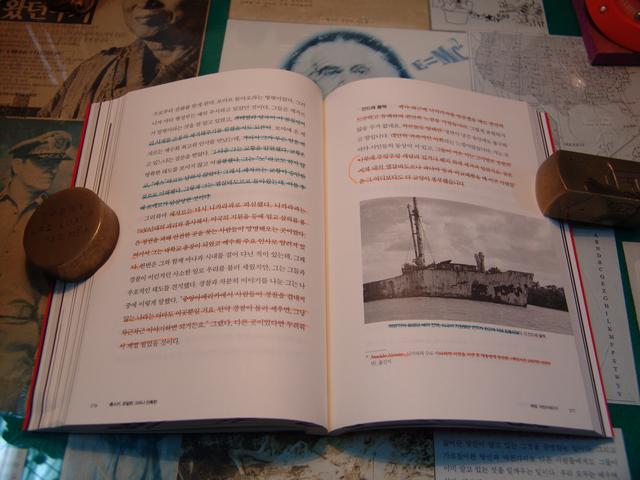
마지막으로 안드레 블첵은 “서양은 전 세계에 대한 장악과 통제를 더욱 공고히 하려고 하고 있는 것 같습니다. 단호한 의지를 지닌 몇몇 국가와 의지를 굳힌 개인들 외에는 그것을 가로막을 것도 별로 없습니다. 그러나 인류 역사가 보여 주둣이 어쩌면 그것만으로도 여전히 서양의 테러를 막고 휴머니즘이 승리할 수 있는 길을 마련하기에 충분할 수도 있을 겁니다.”라고 대담을 정리하고 있다.
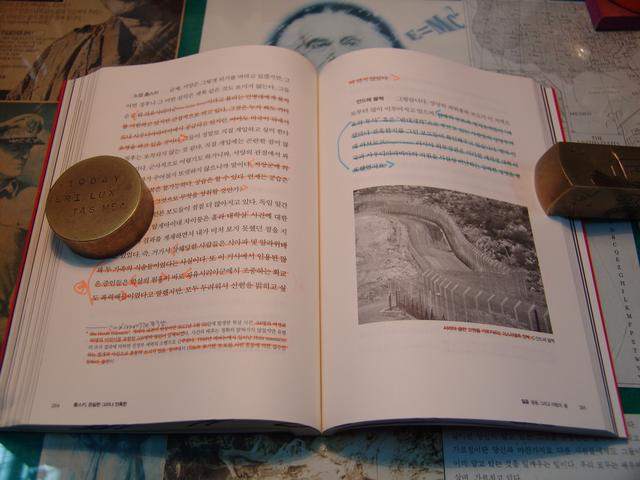
지난 1979년부터 약 5년간 외항선 기관사로 근무하면서 세계 도처에 대한 편력을 필두로 시작된 미국 18개 주를 합해서 약 65개국을 다녀본 경험들과 틈틈이 세계의 인문지리와 역사를 공부한 식견에 미루어 짐작하건데, 아직까지도 인간들이 유사 이래 집단을 이루어 살면서 시작된, 전제 권력은 유구한 역사를 흐르면서 지속되고 있다고 생각하고 있다. 아직도 일부의 인간들은 원주민의 자유와 자원을 억압하고 탈취하며 자신들의 철학과 세계관을 강요하고 있다. 그리고 역사 이래 지금까지 지구상의 모든 분쟁의 저류에는 이들의 탐욕이 깔려 있다고 생각한다. 이들은 유치한 오락과 자극으로 모든 눈과 귀를 막고 끊임없이 두뇌를 세뇌시켜서 이러한 현실을 자각하지 못하게 다양한 명분과 논리를 내세워 막고 조종하고 있다. 그리고 대부분의 선량하고 순진한 시민들은 이에 순치된 삶을 영위하고 있다.
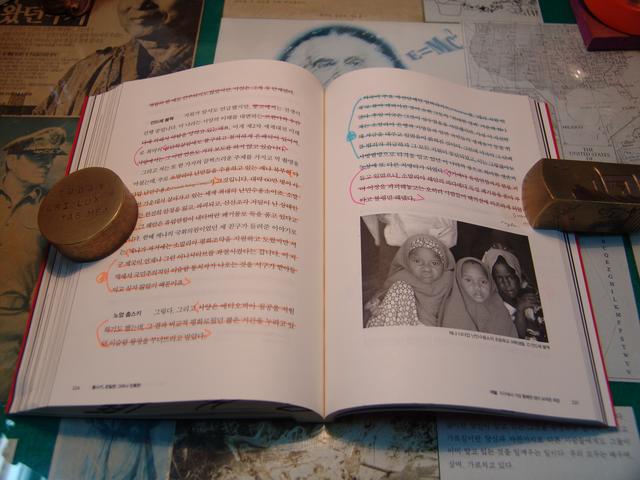
라오스 도자기 평원에 대한 폭격과 베트남의 에이전트 오렌지의 살포, 중미와 남미의 쿠테타와 내전들, 콩고와 르완다 내전, 프렌치 커넥션, 수우족에게 몰살된 제7기병대, 이 모든 피비린내 나는 사건의 저류에는 황금에 대한 탐욕이 도사리고 있다는 것을 새삼 돌이켜 보게 된다. 우리가 육신을 가지고 있는 한 힘없이 정의를 말할 수는 없는 것일까?
감사합니다
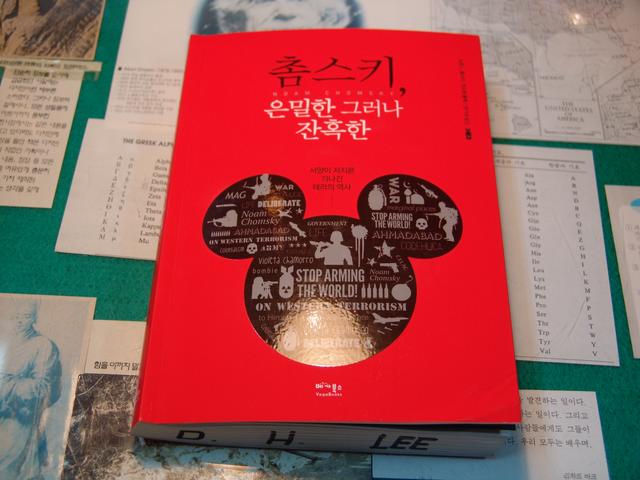
2014년 11월 26일
고신대학교 의과대학 약리학교실 이 대 희 드림
별을 향해 목표를 높게 조준하라.
별을 향해 목표를 높게 조준하라.
비록 별에 도달하지는 못하지만
우리들은 결국 원하던 항구에 도착하게 된다.



21세기의 자본론(Das Kapital)
21세기의 자본론(Das Kapital)
‘피케티의 21 세기 자본 바로읽기’를 읽고

한 분의 철학자와 여섯 분의 경제학자들이 설명하고 비판한 ‘피케티의 21 세기 자본 바로읽기’는 피케티의 경제이론 대한 이해와 아울러 현재 한국을 비롯하여 전 세계적으로 높아지고 있는 부의 재분배에 대한 사회적 요구나 사회 현상을 이해하는데 매우 도움이 되었다.
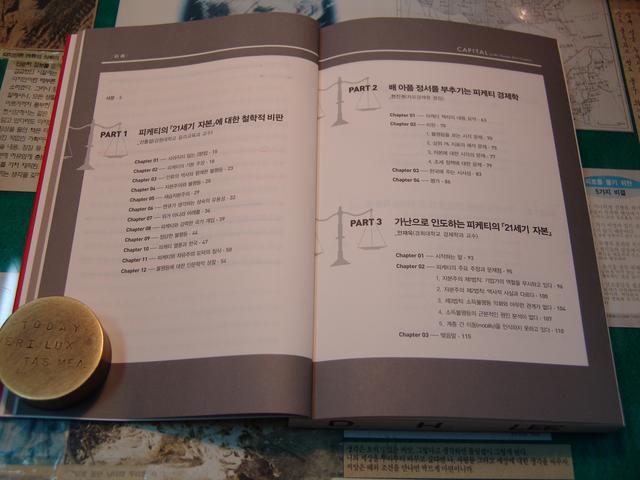
먼저 신중섭 교수의 피케티가 ‘21 세기 자본’에서 주장한, 부와 소득의 불평등이 심화되는 현상과 대책을 정리한 것을 보면 다음과 같다.
“부와 소득의 불평등은 자본주의 본질적 모습이고 불평등이 심화되는 이유는 자본수익률이 경제성장률을 앞서기 때문이며 이러한 불평등을 해소할 수 있는 방법은 부에 대한 누진적 글로벌 과세라고 주장하고 있다.”
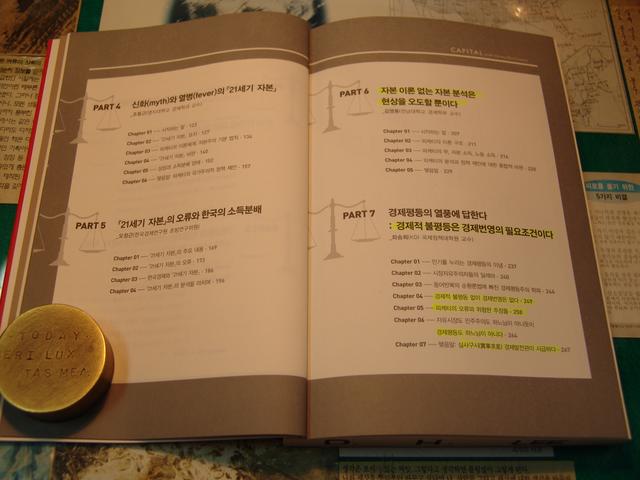
이에 대하여 신중섭 교수는
“부와 소득의 불평등은 어느 사회나 존재하는 것이지만, 이것을 직접 숫자로 확인하면 보통사람들은 열 받게 마련이다. 이 열의 강도를 낮출 수 있는 효과적인 방법 가운데 하나는 그 문제를 사회적 논의의 대상으로 삼음으로써 그것의 실상에 대해 숙고하도록 하는 것이다. 이런 과정을 거치면 불평등에 대한 사회적 반응은 차분해질 수 있을 것이다.”이라고 주장하고 있다.
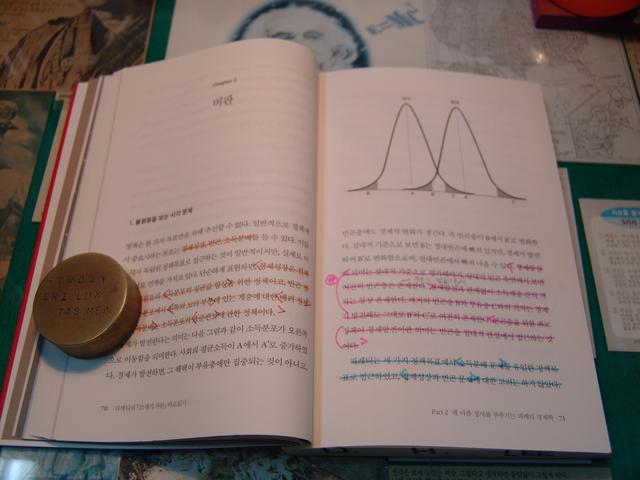
자유경제원 현진권 원장은 “불평등 실태에 대해 많은 사람들이 관심을 가지고 흥분하는 이유는, 부자 계층의 몫은 다른 계층의 희생을 바탕으로 이루어졌다는 잘못된 생각을 바탕으로 하기 때문이다. 즉 불평등의 자료의 이면에는 경제를 제로섬(zero-sum game)으로 보는 심각한 인식의 문제가 존재한다. 특정 계층의 점유율이 높아져, 다른 계층의 점유율이 떨어졌다고 해도, 그 사회의 경제성장이 높으면, 점유율이 낮아진 소득계층의 삶의 질은 오히려 높아질 수 있다. 경제는 제로섬 게임이 아닌 포지티브섬 게임(positive-sum game)으로 다른 계층의 희생이 없어도 전체 계층의 절대 소득은 동시에 증가할 수 있다.”고 피케티의 오류를 비판하고 있다.
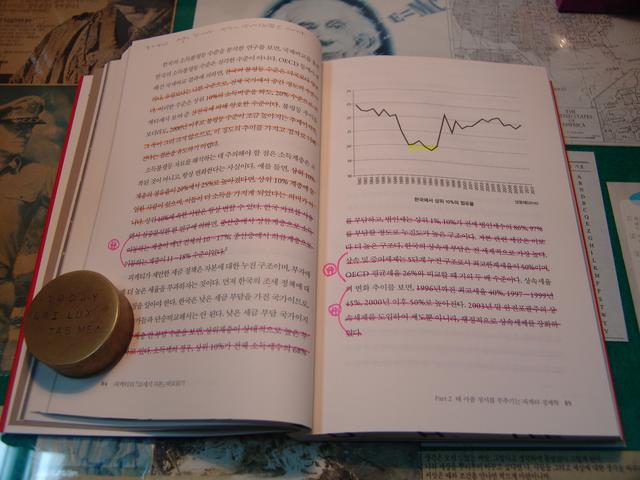
안재욱 교수는 “피케티의 ‘21 세기 자본’은 사람들을 가난으로 인도하고 있고, 궁극적으로는 불평등의 완화가 아니라 불평등을 더욱 심화시키는 세계로 우리를 인도하고 있다. 세계 모든 국가들이 공조하여 자본 증세를 강화해야 한다는 피케티의 주장은 마르크스와 엥겔이 ‘공산당 선언’에서 “ 전 세계 노동자들이여 단결하라”로 외치는 것과 어딘지 닮았다.”고 주장하고 있다.
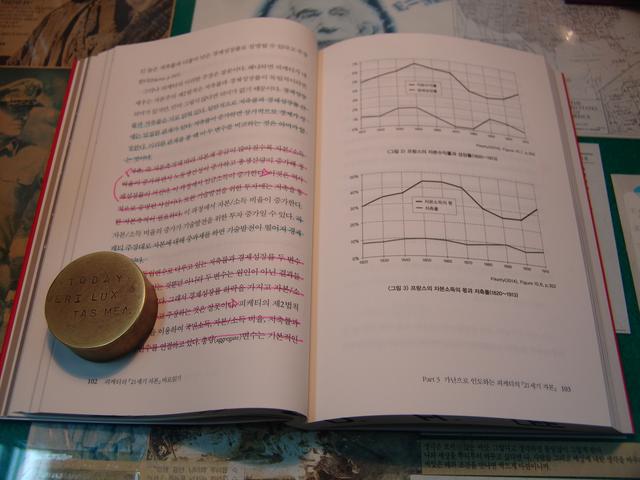
조동근 교수는 “성장은 긴 시간으로 볼 때, 불균등을 수반한다. 하지만 평균적으로 모든 계층의 절대적인 소득수준과 ‘삶의 질’이 개선된다. 불균등을 인정하지 않는 것은 성장의 엔진을 제거하는 것이다. 최고소득계층과 최저소득계층의 괴리에 초점을 두는 것은 ‘증오’를 부를 위험이 있다. 형평과 평등을 강조해온 사회주의 실험이 왜 실패했는가를 반추해야 한다. 성장페달을 밟되, 빈곤계층에 대해 사회 안전망을 구축하는 것이 가장 좋은 정책조합이다.”라고 견해를 밝히고 있다.
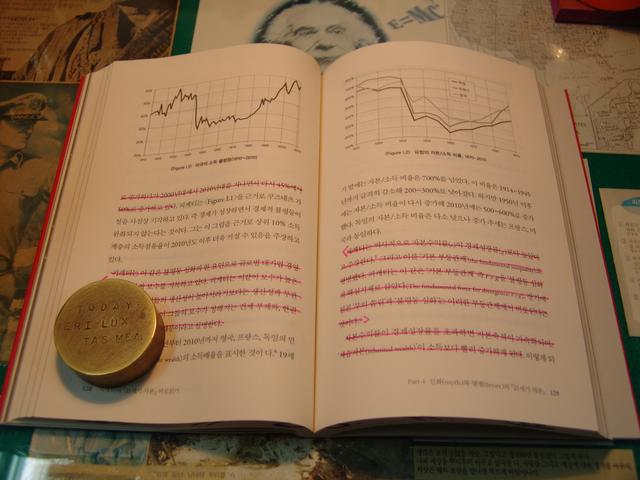
한국경제원 오정근 위원은 “피케티의 주장처럼 성장둔화가 분배악화를 초래하지만 그것은 어디까지나 기업가가 투자를 하지 않아서 고용이 안 되어서 분배구조가 악화된 것이다. 이점을 간과하고 자본가에게 세금을 더욱 무겁게 물리면 어떻게 될까? 아마도 자본가들은 높은 자본 비용으로 더 이상 투자해도 남는 순이익이 예상되지 않으므로 투자를 줄이거나 해외로 탈출해 일자리는 더욱 없어지고, 그 결과 국민소득에서 차지하는 노동소득 비율은 더욱 줄어들어 분배 구조는 더욱 악화될 것이다.”라고 주장하고 있다.
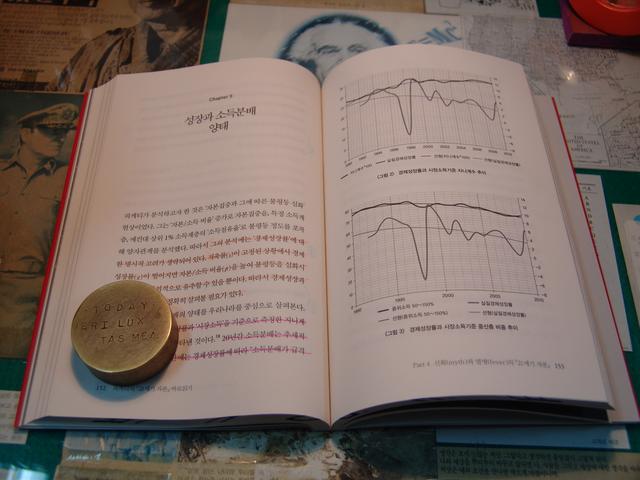
김영용 교수는 “경제의 성장과정에서 소득과 부의 격차는 커질 수도 있고 작아질 수도 있다. 그러나 한 가지 분명한 사실은 가장 못사는 사람들의 생활수준도 꾸준히 개선되어 왔고 앞으로도 개선되어 갈 것이라는 점이다. 그리고 그러한 성장의 원동력은 저축을 바탕으로 한 자본의 축적에 있다는 사실은 강조되어야 한다. 지금 이 시점에서 우리가 상기할 수 있는 경구는 밀턴 프리드먼(Milton Friedman)의 “자유를 추구하는 사회는 자유와 평등을 동시에 얻을 수 있지만 평등을 추구하는 사회는 자유와 평등을 모두 잃는다. ”라는 것이다.”라고 비판하고 있다.
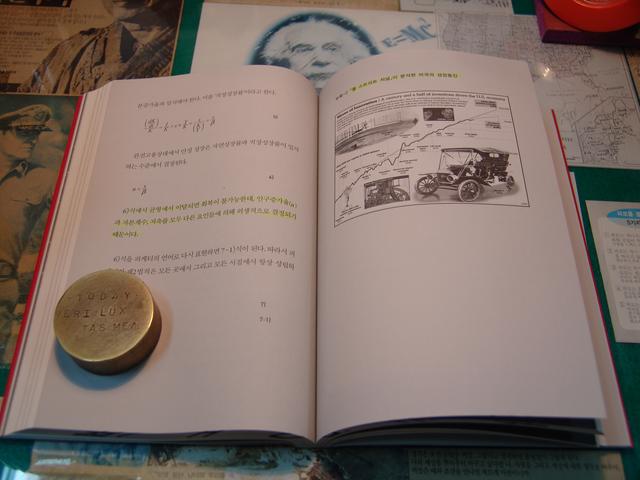
마지막으로 좌승희 교수는 “우리는 모두 각자의 세계관과 인생관에 따라 삶과 경제생활은 영위하면서도 어떤 세계관, 인생관이 각자의 경제적 번영에 도움이 되는지 모르고 사는 꼴인 것이다.
이런 현실이 타파되지 않는 한 피케티와 같은 ‘경제를 모르는 경제학 기술자’들이 세상을 가지고 노는 일은 계속 될 것이다. 이에 필자는 경제학이 실사구시적 기반 위에서 다시 쓰여야 한다고 주장한다.”는 말로 논지를 끝맺고 있다.
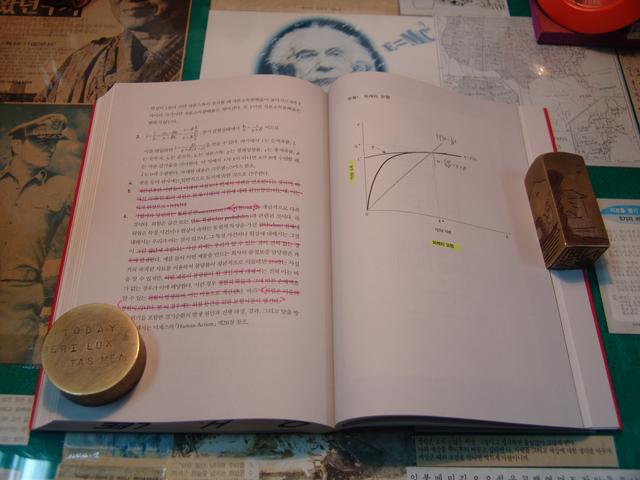
2004년 중국 운남성(雲南省)을 2주 정도 여행한 적이 있었다. 리짱(麗江)에서 꼬박 하루를 걸려 펑커(奉科)라는 오지를 의료봉사를 한다고 갔는데 19세기의 삶을 사는 그들의 향청(鄕廳)의 벽에는 아직 마르크스와 엥겔스의 빛바랜 흑백사진이 걸려 있었다. 그들의 삶의 수준은 상해나 북경 같은 도시에 비해 거의 백년 정도 차이가 난다고 느꼈다. 공산주의는 토지를 몰수하여서 무상분배하는 것으로 시작해서 그러한 권력을 가진 소수가 누릴 자산이 존재하는 동안만 활개를 치다가 종국에는 모두 몰락하게 된다. 정말 우리들 모두가 남의 재물을 파렴치하게 약탈하거나 탐하는 도적 같은 삶이 추구할 가치가 있는 것인지 숙고해 볼 필요가 있다.
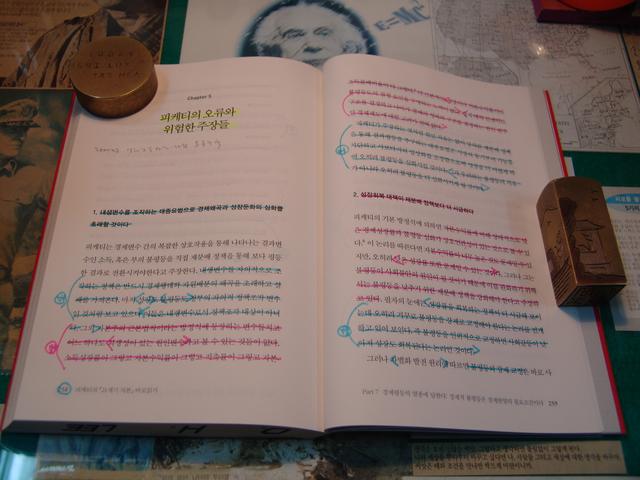
이 책은 현재의 다양한 사회적인 요구와 현상에 대하여 폭넓고 깊이 있게 고찰해볼 수 있는 많은 기회와 철학적이고 경제적학인 논제들을 매우 사실적으로 기술하고 있는 보기 드물게 재미있고 유익한 사회과학 도서라고 생각한다.
감사합니다.
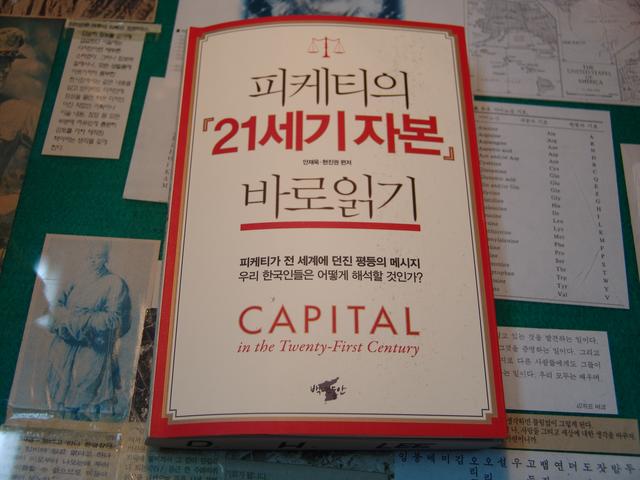
2014년 11월 15일
고신대학교 의과대학 약리학교실 이 대 희 드림
강물은 흐르고 삶은 계속된다.
좀 더 알차게
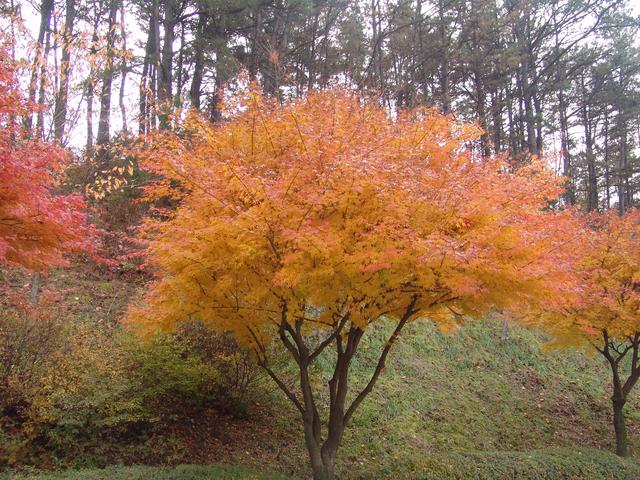
바닷가의 날씨는 따뜻해서 뜰에는 아직 풋고추와 방울토마토의 열매들이 한창이지만 산속의 산책로에는 노랗고 붉은 단풍들과 쌓인 낙엽들로 아름답다.
지난 주말에 귀금속(noble metals)과 관련된 책을 읽다가 “‘문명은 금과 더불어 흥망 한다’라고 역사학자 윌 듀런트(Will Durant)는 썼다.”라는 구절을 보게 되었다. 30여 년 전부터 궁금해 하던 한 글귀가 불현듯 떠올랐다.

좀 더 알차게
일단 프라이한 달걀을 날계란으로 되돌릴 수야 없겠지만 그렇다고 생각조차 하지 말란 법은 없을 것이다.
내가 만일 새로 인생을 시작한다면 실수를 더 많이 저지를 작정이다. 푹 쉬면서 이번보다 멍청한 짓도 더하고 위생이며 건강 따위도 덜 따지고 좀더 많은 곳을 찾아다닐 것이다. 산에도 더 가고 좀더 많은 강을 찾아 헤엄을 칠 것이며 아이스크림을 훨씬 더 먹고 시금치를 덜 먹겠다. 머리 속에서 꾸며 낸 문제들을 줄이고 실질적인 문제들과 더 부딪쳐 보겠다.
여태까지 나는 한 시간 시간 하루하루를 신중하게 살아가는 무리 중의 하나였다. 물론 좋았던 때도 있었다. 그러나 내가 다시 산다면 더 많은 재미를, 아니 훨씬 더 많은 재미를 찾고 싶다. 여행을 갈 때면 반드시 체온계, 비옷과 낙하산 따위를 챙겨 갖고 가지만 만약 인생을 다시 산다면 그때는 좀더 가벼운 복장으로 다니겠다.
다시 태어난다면 봄에는 좀더 일찍부터 맨발로 다니고 가을에는 좀더 늦게까지 맨발로 지내겠다. 개를 더 많이 기를 테고 밤늦게까지 깨어 있을 작정이다. 애인도 여럿 가져보고 낚시도 자주 갈 것이며, 회전목마도 실컷 타고 서커스 구경도 마음껏 해 보련다.
사실상 모든 사람들이 심각한 여러 사태에 주눅이 든 이 세상에서 나는 결연히 일어나 사태의 가벼움을 찬양할 것이다. “쾌활함은 지혜보다 더 지혜롭다.”고 한 윌 듀런트의 말에 나는 동의한다.
다시 태어난다면 나는 인생의 즐거움을 좀더 흔쾌히 누리고 싶다.
–D. H.

2011년 겨울, 어느 펀드매니저 분이 이 글의 원문을 알고 싶다고 물어왔으나 그것을 찾을 수가 없었다. 어제야 겨우 그 원문을 제대로 찾을 수 있었다. 1982년 지금쯤, 6개월 동안 고민을 하다가 해상 근무를 그만 하기로 결심하게 된 동기가 바로 리더스 다이제스트에서 읽었던 이 글 때문이었다. 단지 좀 더 멍청하게 살아보고 싶었다. 그 결과 파란만장한 형극의 30여 년의 세월이었지만 충분히 그럴만한 가치가 있었다고 생각된다. 나는 그때의 나처럼 많은 분들께서 이글을 읽고 용기를 가지시기를 기원한다.
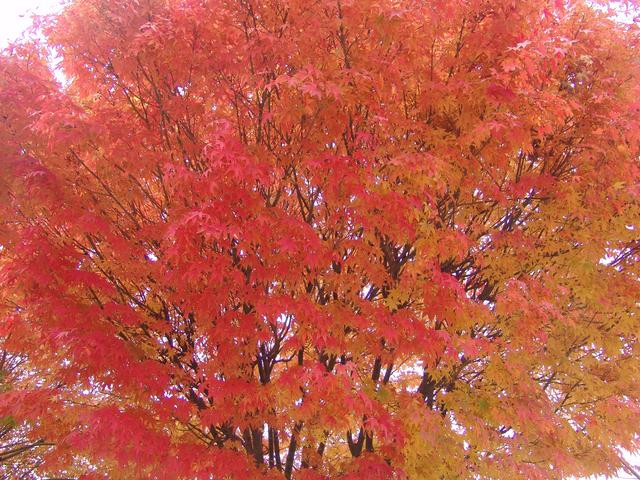
Of course, you can’t unfry an egg, but there is no law against thinking about it.
If I had my life to live over, I would try to make more mistakes. I would relax. I would be sillier than I have been this trip. I know of very few things that I would take seriously. I would be less hygienic. I would go more places. I would climb more mountains and swim more rivers. I would eat more ice cream and less bran.
I would have more actual troubles and fewer imaginary troubles. You see, I have been one of those fellows who live prudently and sanely, hour after hour, day after day. Oh, I have had my moments. But if I had it to do over again, I would have more of them – a lot more. I never go anywhere without a thermometer, a gargle, a raincoat and a parachute. If I had it to do over, I would travel lighter.
It may be too late to unteach an old dog old tricks, but perhaps a word from the unwise may be of benefit to a coming generation. It may help them to fall into some of the pitfalls I have avoided.
If I had my life to live over, I would pay less attention to people who teach tension. In a world of specialization we naturally have a superabundance of individuals who cry at us to be serious about their individual specialty. They tell us we must learn Latin or History; otherwise we will be disgraced and ruined and flunked and failed. After a dozen or so of these protagonists have worked on a young mind, they are apt to leave it in hard knots for life. I wish they had sold me Latin and History as a lark.
I would seek out more teachers who inspire relaxation and fun. I had a few of them, fortunately, and I figure it was they who kept me from going entirely to the dogs. From them I learned how to gather what few scraggly daisies I have gathered along life’s cindery pathway.
If I had my life to live over, I would start barefooted a little earlier in the spring and stay that way a little later in the fall. I would play hooky more. I would shoot more paper wads at my teachers. I would have more dogs. I would keep later hours. I’d have more sweethearts. I would fish more. I would go to more circuses. I would go to more dances. I would ride on more merry-go-rounds. I would be carefree as long as I could, or at least until I got some care- instead of having my cares in advance.
More errors are made solemnly than in fun. The rubs of family life come in moments of intense seriousness rather that in moments of light-heartedness. If nations – to magnify my point – d international carnivals instead of international war, how much better that would be!
G.K. Chesterton once said, “A characteristic of the great saints is their power of levity. Angels can fly because they can take themselves lightly. One ‘settles down’ into a sort of selfish seriousness; but one has to rise to a gay self-forgetfulness. A man falls into a ‘brown study’; he reaches up at a blue sky.”
In a world in which practically everybody else seems to be consecrated to the gravity of the situation, I would rise to glorify the levity of the situation. For I agree with Will Durant that “gaiety is wiser than wisdom.”
I doubt, however, that I’ll do much damage with my creed. The opposition is too strong. There are too many serious people trying to get everybody else to be too darned serious.
–Don Herold (1889-1966)
감각에 마음이 젖지 않으면
감각에 마음이 젖지 않으면
마음은 일체의 색(色)에 걸리지 않아
언제나 적적(寂寂)하고 소소(昭昭)하게 된다.
오늘 천안에서 학회가 있어서 출장을 갑니다.



언어란 나와 상대의 마음이 만나는 경계면(interface)이다.
언어란 나와 상대의 마음이 만나는 경계면(interface)이다.
그러므로 상대는 그곳까지만 상호작용할 수 있다.
말이 부족하거나 넘치면 인연(만남)은 이루어질 수 없다.

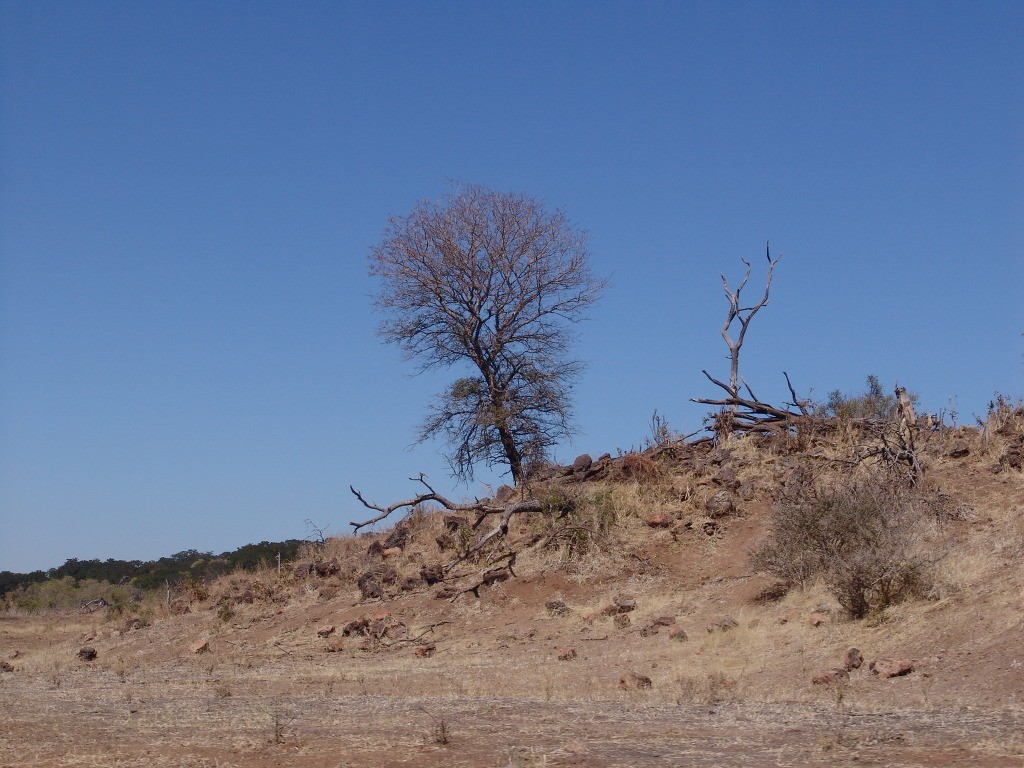
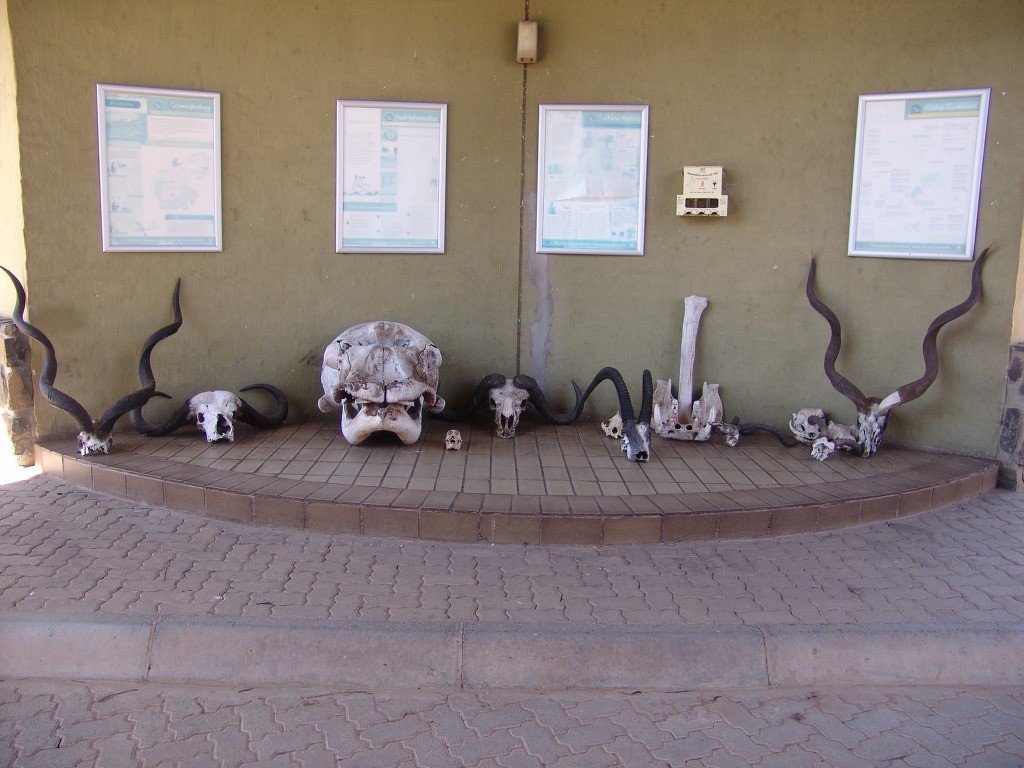
외모에 집착하나 숨 떨어진 그곳에 무슨 미추가 있는가?
외모에 집착하나
숨 떨어진 그곳에 무슨 미추가 있는가?
일체의 미추도 단지 상(相)에 불과한 것을.

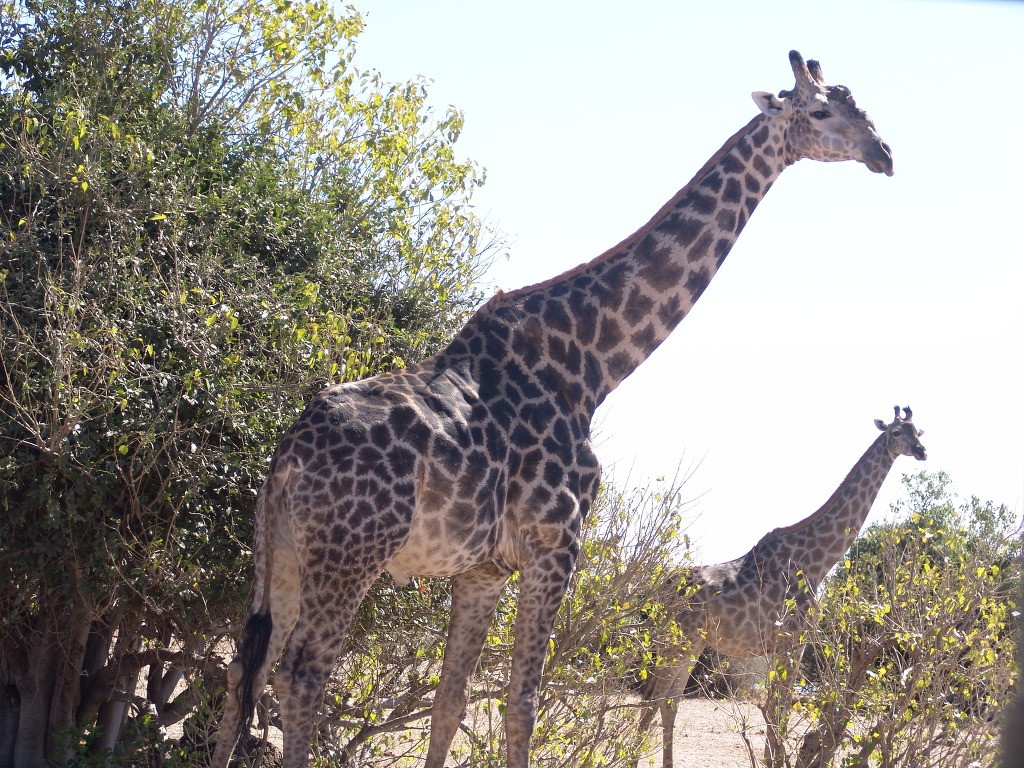
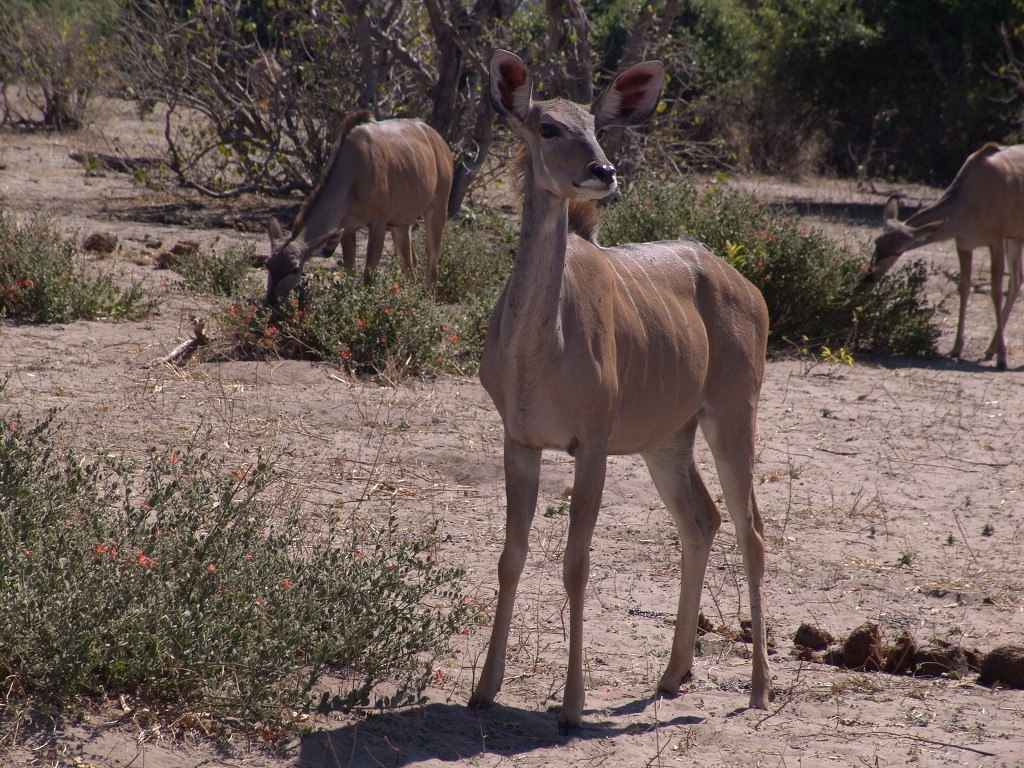
살아있는 모습 그대로이나 단지 손이 너무 희고 차구나.
살아있는 모습 그대로이나 단지 손이 너무 희고 차구나.
오늘 새벽 인근의 모 고등학교 운동장에서
운동 나오신 할머니 한 분이
아마도 심근 경색으로 사망하셨습니다.
추운 날씨에 체표 혈관의 수축으로 심장에 부담이 심했을 것으로 판단됩니다.
보온에 신경을 쓰시고
살아있는 현실을 충분히 즐기시기 바랍니다.
아침 출근길에 사체 검안 현장을 보게 되었습니다.
할머니의 명복을 빕니다.





